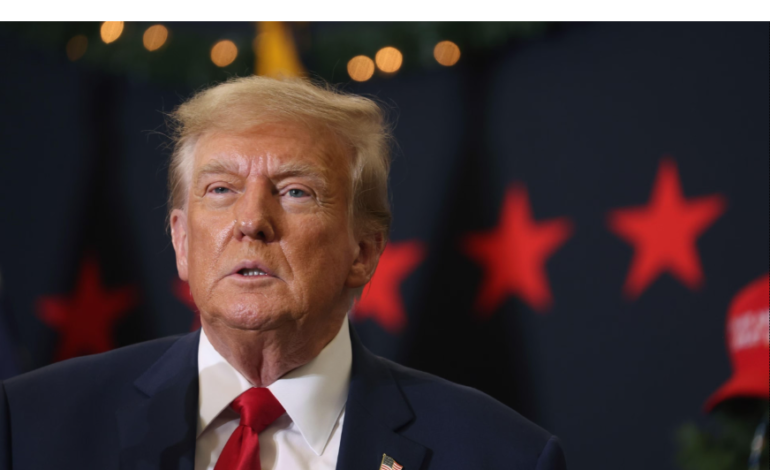
Trump 2.0—A new chapter or a global gamble?
By: Dr Avi Verma
Donald Trump, now President-Elect and with his party poised to dominate both houses of Congress, is once again at the center of global discourse. His return to power promises a dramatic recalibration of U.S. domestic and foreign policies. However, this transition comes amidst a backdrop of unrest, with a shocking wave of violence shaking the nation—an attack in New Orleans and a Tesla explosion in front of the Trump Tower in Las Vegas. These incidents cast a shadow over what should have been a celebratory moment for Trump’s supporters, raising questions about the domestic stability of a Trump 2.0 presidency.
As the world speculates on how this chapter will unfold, Trump’s high-profile engagements with nations like Canada, China, Denmark, Panama, and Mexico suggest an ambitious foreign policy agenda. Would this recalibration strengthen America’s global position, or are we on the brink of an era of instability?
The Global Perspective
Trump’s unorthodox diplomacy has the potential to shake up stagnant alliances and reignite trade talks. His previous tenure saw renegotiated deals like the USMCA, and his willingness to engage unconventional partners may yet yield similar results. However, his combative rhetoric and unpredictable strategies risk alienating traditional allies. Recent tensions with Canada and Denmark, combined with sharp exchanges with China and Mexico, suggest that while Trump’s approach may pressure adversaries, it could also fracture key alliances.
Adding to the complexity is Elon Musk’s increasing role on the global stage. Musk’s outspoken criticism of social media platforms and commentary on international elections mirror Trump’s penchant for disrupting established norms. Together, these figures symbolize a shift in global leadership—a new era where influence is wielded by powerful personalities as much as by traditional institutions.
The Domestic Front
Domestically, Trump’s hardline policies—particularly on immigration—are poised to ignite significant debate. His plans to revive the “Remain in Mexico” program, tighten border controls, and curtail pathways to citizenship for undocumented migrants reflect a staunch stance. While supporters view these measures as necessary for national security, critics fear they will alienate immigrant communities and strain U.S. relations with neighbors like Mexico and Canada.
The recent attack in New Orleans and the Tesla explosion in Las Vegas underscore the urgent need for a unifying domestic strategy. Trump’s rhetoric has often been accused of polarizing the nation, and these incidents suggest an undercurrent of volatility that demands careful attention.
Global Reactions
World leaders have responded to Trump’s return with caution. Canadian Prime Minister Justin Trudeau has been measured, while European leaders like Germany’s Olaf Scholz have expressed concerns about potential disruptions to multilateral agreements. In Asia, Chinese officials remain wary of renewed clashes over trade and political matters. These reactions indicate that Trump’s presidency will face significant scrutiny from the international community, even as it opens new avenues for renegotiation and reform.
Uncharted Waters
A Trump 2.0 presidency represents both an opportunity and a gamble. While it may challenge entrenched systems and explore unorthodox solutions, it also risks destabilizing fragile relationships both at home and abroad. With 2025 on the horizon, the world must prepare for a period of uncertainty, where the stakes are higher, and the outcomes more unpredictable than ever.
As we bid farewell to 2024 and welcome 2025, IndoUS Tribune extends its best wishes to the incoming administration. We hope for a year that brings clarity, stability, and progress for all. At IndoUS Tribune, we remain steadfast in our mission to provide balanced and insightful analysis. We will continue to track these developments and assess their implications for U.S.-India relations and the broader global order.